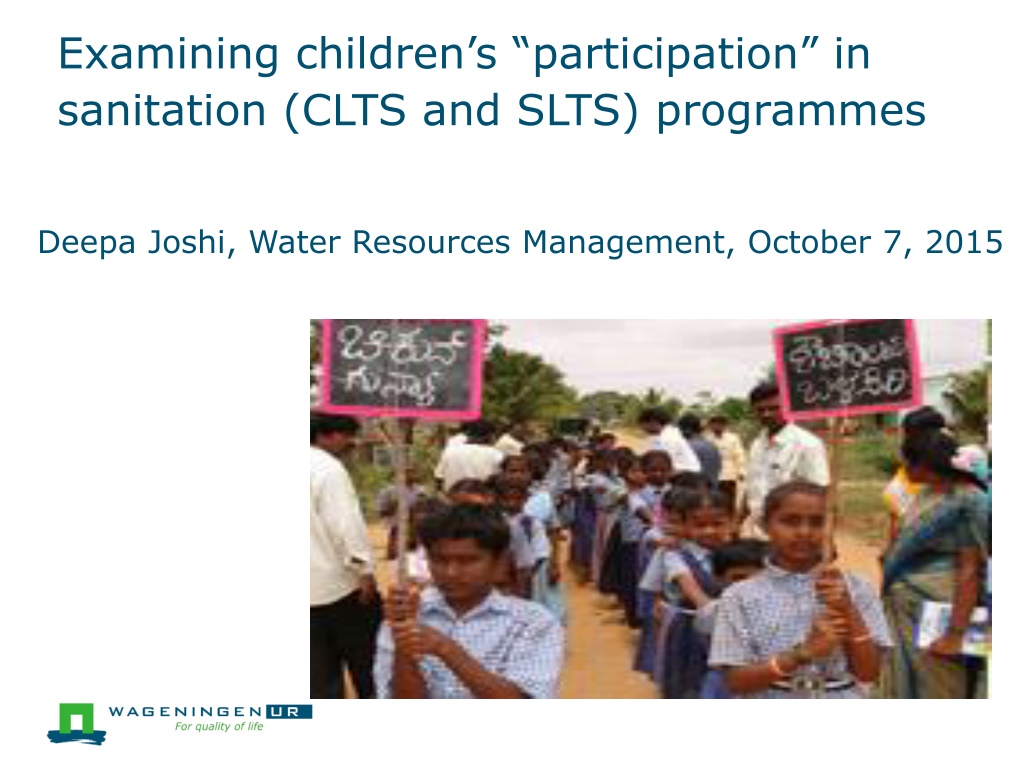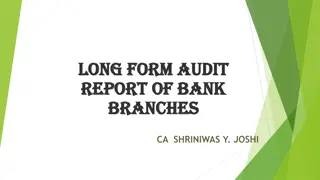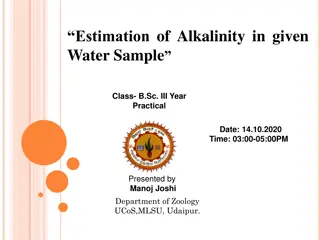Examining Children's Participation in Sanitation Programs and Their Roles in CLTS and SLTS
This study explores the involvement of children in sanitation initiatives like CLTS and SLTS, discussing the challenges and potentials. It highlights the need for meaningful participation, children's empowerment, and their roles in achieving open defecation-free communities. The article also addresses the importance of children's rights to participate in decisions related to sanitation, as outlined in the UN Convention on the Rights of the Child (CRC).
Uploaded on Dec 09, 2024 | 0 Views
Download Presentation

Please find below an Image/Link to download the presentation.
The content on the website is provided AS IS for your information and personal use only. It may not be sold, licensed, or shared on other websites without obtaining consent from the author. Download presentation by click this link. If you encounter any issues during the download, it is possible that the publisher has removed the file from their server.
E N D
Presentation Transcript
Examining childrens participation in sanitation (CLTS and SLTS) programmes Deepa Joshi, Water Resources Management, October 7, 2015
Sanitation Dialogues? Assessment, dialogue, shared vision? Research, Policy and Practice huge gaps! Testing and learning? Targets to be met, blue-prints: numbers vs. process School Led Total Sanitation Student interest in WASH! 2
Participation: CLTS Supply does not match demand! not appropriate Culture of dependency Demand-led approaches PARTICIPATION NEO-LIBERALISM More money is clearly needed but little is available (Evans, 2005) 3
Participation in development Infinitely malleable can be framed in any way possible Meaningful participation (empowerment) TO passing the baton of commitments, roles and time-bound responsibilities. 4
Participation in CLTS Walk of shame/ shameful walk Faeces quantification Faeces, pathogens and disease: drinking water competition Pledge to make the community Open Defecation Free 5
Participation and CLTS Poor communities progressing on their own on the sanitation ladder? Fair? Feasible? Sustainable services? Blaming, shaming, indignities. Children s roles in CLTS Bangladesh: Bicchu bahini army of scorpions: shaming/ reporting on openly defecating adults: highly effective and empowering! Indonesia: songs about eating shit 6
Childrens roles in CLTS/ SLTS Are children participating setting the agenda for their involvement/ engagement? Is their engagement or participation in their best interests? Articles 12 and 13: UN Convention on the Rights of the Child (CRC): children s rights to participate in decisions/ issues relevant to their lives sanitation! Just, equitable societies give children the space to voice opinions/ influence decisions 7
CRC lessons learnt: Agenda for children s participation set by adults; driven by development goals and interests, rather than the interests of children. Enabling environment? Are adults aware and mindful? Children s rights and responsibilities of the adults to children. Sanitation change agents: enabling environments? 8
SLTS and Childrens Participation 2000, Nepal: Children as sanitation change agents School sanitation: from supply to demand-led Same principles of blaming/ shaming UNICEF! 9
Review of SLTS initiatives in Ghana MSc research: Vincent van den Ouden Ghana: 4 rural schools Different SLTS model Secondary data: Fernandez (2008) Kenya, Tanzania, Ethiopia. 11
Enabling environment? Pour flush toilets in 2 schools (donor-supplied); community built pit-latrine + none Toilet maintenance: children empowering? Handwashing equipment (donor-supplied) 12
To participate or not? Fear of the adults School health clubs Glass of water competitions negative? Punishment for open-defecation! The authority of teachers 14
The practice of SLTS Aware yes! But often unable to practice in the school. In the community: fines for OD persons (10 Ghanaian cedis (GHC). Not reporting, not blaming and shaming (violence against children 2009) Ghana s culture: children should know their place 15
To sum: SLTS need for training adults agenda for participation, for the programme to be set by children being aware will not change infrastructure and services : schools, poorest households Development for children OR children for development? https://www.youtube.com/watch?v=xbqA6o8_WC0 16







